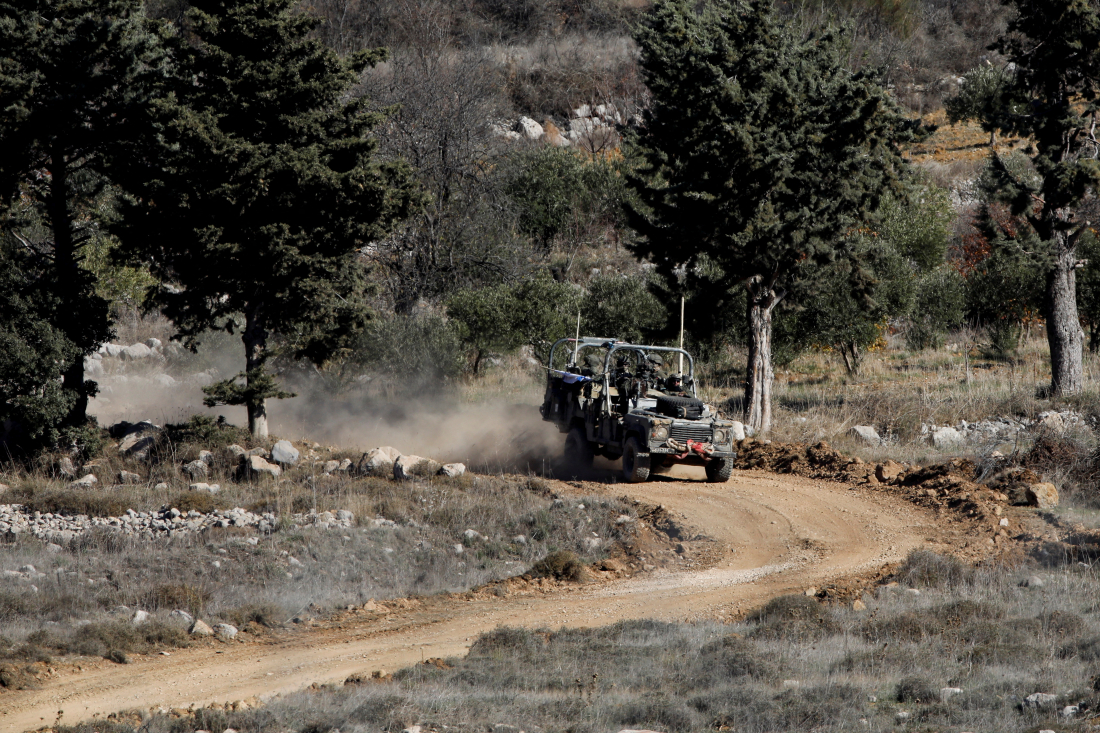U.S. Vice President JD Vance visits Armenia in historic first
U.S. Vice President JD Vance has arrived in Armenia, marking the first time a sitting U.S. vice president or president has visited the country, as Was...
Israeli troops intensified operations in the U.N.-monitored buffer zone between Syria and the Golan Heights, responding to ongoing security threats and strategic changes following the recent ousting of Syrian President Bashar al-Assad.
Israel's military forces increased their presence in the U.N.-monitored buffer zone between Syria and the Israeli-occupied Golan Heights on Tuesday, a significant move amid escalating regional tensions. This operation comes after Israel agreed to double its population on the Golan Heights while addressing security threats from Syria, despite recent leadership changes within Syrian factions.
Israel's presence in the buffer zone highlights its commitment to safeguarding the Golan Heights, an area Israel captured from Syria during the 1967 Six-Day War. This includes taking control of a Syrian military post on Mount Hermon, a strategic position overlooking Damascus.
Ahmad al-Sharaa, the leader of the Islamist group Hayat Tahrir al-Sham (HTS), which helped depose Syrian President Bashar al-Assad, accused Israel of using false pretexts to justify attacks on Syrian soil. However, Sharaa, known as Abu Mohammed al-Golani, has shown a willingness to avoid prolonged conflicts as Syria focuses on recovery and rebuilding efforts.
Israel's operations in the demilitarised zones established after the 1973 Arab-Israeli war showcase a persistent strategy to secure the region while addressing potential threats from rebel forces and Damascus-based security dynamics.
As Israel solidifies its military stance in these strategic locations, the situation remains highly fluid, with regional alliances and territorial control shifting rapidly. Continued operations in the buffer zone signal Israel's determination to maintain control over the Golan Heights while navigating Syria's internal challenges and regional instability.

U.S. President Donald Trump has criticised American freestyle skier Hunter Hess after the athlete said he felt conflicted about representing the United States at the Winter Olympics in Italy, sparking a public clash that highlights growing political tensions surrounding the Games.
U.S. skiing great Lindsey Vonn underwent surgery in an Italian hospital on Sunday after her attempt to win Olympic downhill gold ended in a violent crash just seconds into the race at the Milano Cortina Winter Games.
Several avalanches struck northern Italy on Saturday, killing at least three people, as rescue officials warned the death toll could rise with unstable conditions persisting across the Alps.
U.S. President Donald Trump’s Middle East envoy Steve Witkoff and Trump’s son-in-law Jared Kushner visited the USS Abraham Lincoln aircraft carrier in the Arabian Sea on Saturday after completing a round of talks with Iran.
Russian forces attacked Ukraine’s energy infrastructure overnight on Saturday, marking the second such strike in less than a week, according to Ukrainian authorities.
Pressure is mounting on UK Prime Minister Keir Starmer amid resignations and a row over Peter Mandelson, a powerful figure in the ruling Labour Party. The episode has raised doubts about Starmer’s authority and how firmly his own party continues to back him.
Chinese authorities have quietly signalled a shift in strategy, instructing some state-owned banks to rein in their purchases of U.S. government bonds.
Convicted Epstein associate Ghislaine Maxwell refused to answer questions before Congress, while her lawyer said she could clear President Donald Trump of wrongdoing if granted clemency.
Pakistan’s President Asif Ali Zardari has accused Afghanistan’s authorities of fostering conditions “similar to or worse than pre-9/11”, as tensions between the two neighbours intensify amid a surge in militant attacks inside Pakistan.
Scottish Labour leader Anas Sarwar has called on Prime Minister Keir Starmer to step down, saying that “the distraction needs to end and the leadership in Downing Street has to change.”
You can download the AnewZ application from Play Store and the App Store.

What is your opinion on this topic?
Leave the first comment